Difference between 'Then' and 'Than'Did you find the words "then" and "than" confusing in the sentences? Do you ever get lost about which to use? Don't worry! Today, we'll clear up your misunderstanding by explaining the definitions and applications for both "then and than" using samples. 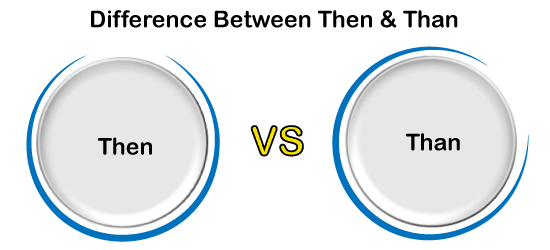
1) ThenThen as an adverb: The word "then" is used in cases where time is quoted, such as "She went walking then." The word "then" may also refer to a later point in time such as "Sara won the very first award then in the second season." It is also used in 'as a result' phrases like "If that's what you want, then I'm sorry, but I can't help you" are also used. Furthermore, it emphasizes the interference drawn when used at the end of a word, as in "So you brought it then." It is also often used to end a sentence, as in "See you tomorrow then." Besides this, the word 'then' may be used to indicate a variety of partnerships, which are as follow; Time Relationships
Logical Connections
2) ThanThe word 'than' is used as both a conjunction and as a preposition. 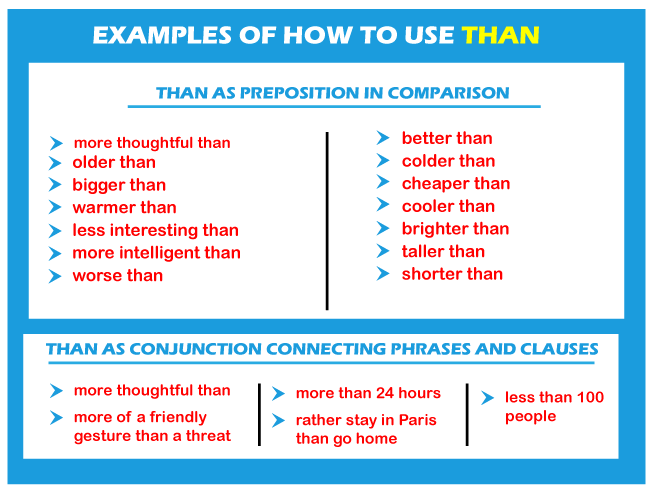
Some examples of 'than':
You must've been constant on the meanings of both terms, but you should also be concerned about mistaking one for the other in prose. To help you differentiate between the two terms, keep in mind that unlike with any other words, neither one of them have a one-word descriptor that is substituted. Replace than with anything else in the following sentence; 'She has a stronger position than I do'. Could you find a better term to replace in the above instance in your memory palace? It's not your mind villa's fault; there isn't any word that does the same thing as that. On the other side, then has several one-word synonyms that can replace them in a phrase. Let us see one more sentence given below; 'I'm not sure what happened then'. Were you capable of coming up with a fitting replacement for them in the case above? You were, I'm optimistic. It's possible to write it as: I'm not sure what happened next. So, there are words like these that can replace it. Re-examine the after scenario in the above sentence such as; 'I'm not sure what happened after that. Than as a conjunction is frequently used in contrasts of two objects, such as A dwarf is shorter than a giant. When used in if-then sentences, the only exception to this language term difference is when used with an e (then). In that case, you only have to focus your mind a little bit and note that only an e is usually used in an if-then sentence. Special Instructions for Usage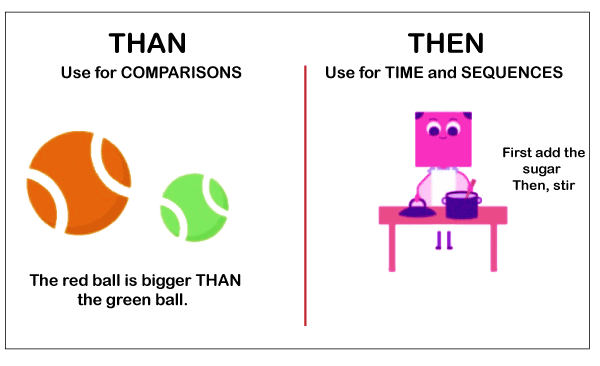
If there weren't some modifications or adjustments to the rules, English wouldn't be a beautiful and confusing language.
However, the words than and then are pronounced and spelled nearly similar. Also, these terms have few similarities and are separate parts of speech. Let us understand the characteristics of these two terms further so that we don't mix them up. When to Use Then in a Sentence: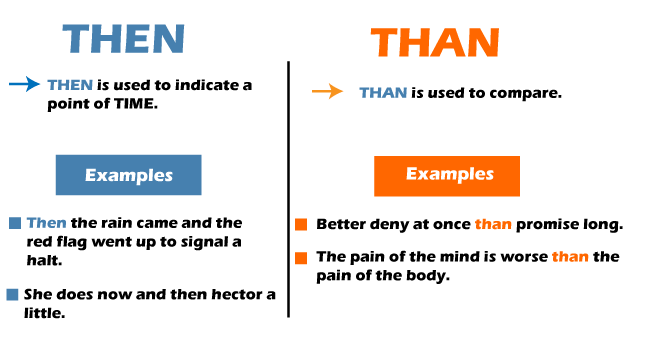
It can be used as an adverb, adjective, or noun. It may imply at that moment, next, or subsequently as an adverb. It can be used as a word to characterize someone or something as being a certain way for a long time but not now. It may be used as a verb to refer to a specific period. He played hockey before showering (Adverb meaning). If you do not read, you can fail the exam. A then extorted a substantial sum of money (Adverb meaning). Using the Word "Than" in a Sentence:A conjunction is when two or more words are used together. It occurs with comparable adjectives such as best, bad, and quicker, among others. It can also occur in sentences where there is only one choice. Furthermore, it is possible to express a choice between two objects.
The pronunciation of then and than will help you recall which word by acting as a substitution cipher. Then, like the terms, time and moment are written with an e and no a. This reality will assist you in remembering that the term then applies typically to a specific period. Is it better to say "then" or "than"? These two words have a familiar tone. Their meanings, on the other hand, do not overlap. Then usually is an adverb, but it may also be a noun or an adjective. It refers to a certain point in time. Whereas, the conjunction than is used to attach two nouns that are being contrasted with an adjective. So, despite their identical pronunciation, these terms can't be interchanged. 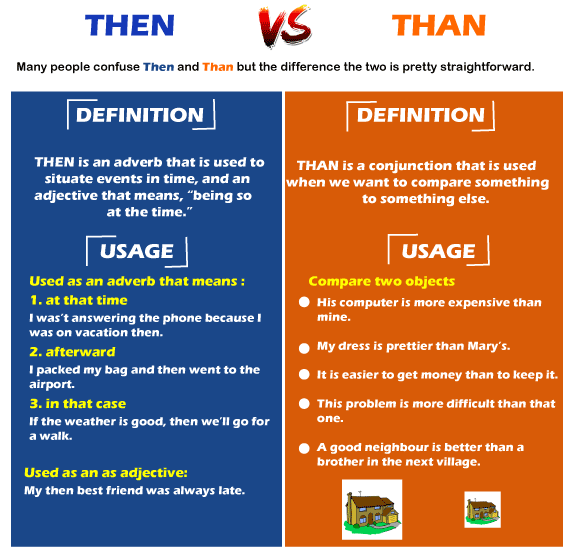
Next TopicDifferences List
|
 For Videos Join Our Youtube Channel: Join Now
For Videos Join Our Youtube Channel: Join Now
Feedback
- Send your Feedback to [email protected]
Help Others, Please Share










